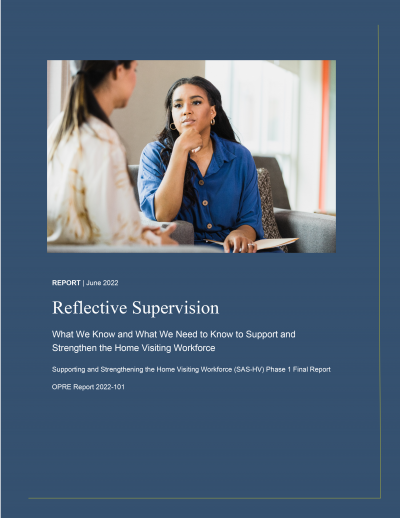
Reflective supervision is a form of supervision that supports home visiting implementation quality by helping providers develop critical competencies and manage powerful emotions that often accompany the work. Sessions focus on the complexity and importance of all relationships (e.g., supervisor-supervisee; provider-client; parent-child) over administrative compliance or performance evaluation. Quality reflective supervision delivered over time may lead to improvements in service quality, staff retention, and family outcomes. Most evidence-based home visiting models encourage the use of reflective supervision, as does the Maternal, Infant, and Early Childhood Home Visiting (MIECHV) Program.
Despite this general acceptance, home visiting lacks a clear, agreed-upon definition of reflective supervision and an understanding of key elements and best practices. The field also lacks evidence that reflective supervision achieves its intended outcomes, and an understanding of the elements that work best for specific contexts and supervisees. The Supporting and Strengthening the Home Visiting Workforce project seeks to identify gaps in knowledge about reflective supervision and home visitor professional well-being and to develop a conceptual model for each to support future research, policy, and practice.
2022
www.acf.hhs.gov

